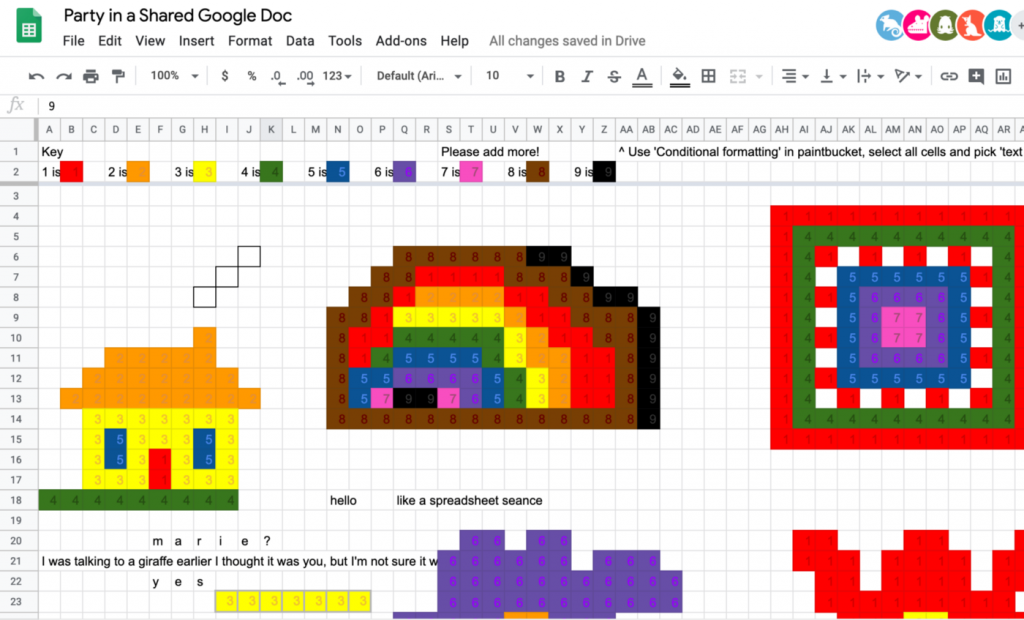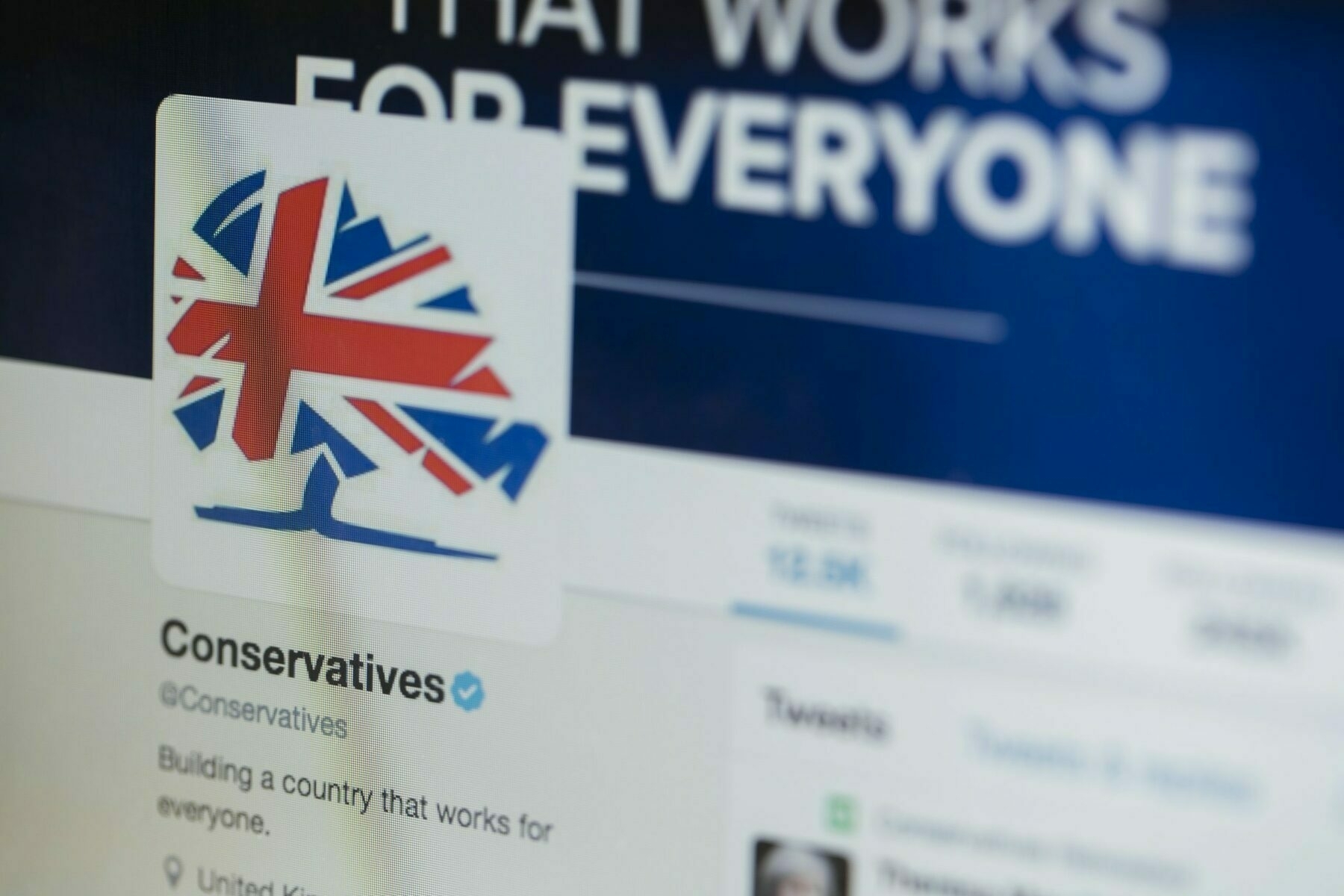- Apple created the privacy dystopia it wants to save you from (Fast Company) — I'm not sure I agree with either the title or subtitle of this piece, but it raises some important points.
- When Grown-Ups Get Caught in Teens’ AirDrop Crossfire (The Atlantic) — hilarious and informative in equal measure!
- Anxiety, revolution, kidnapping: therapy secrets from across the world (The Guardian) — a fascinating look at the reasons why people in different countries get therapy.
- Post-it note war over flowers deemed ‘most middle-class argument ever’ (Metro) — amusing, but there's important things to learn from this about private/public spaces.
- Modern shamans: Financial managers, political pundits and others who help tame life’s uncertainty (The Conversation) — a 'cognitive anthropologist' explains the role of shamans in ancient societies, and extends the notion to the modern world.
- Platforms Want Centralized Censorship. That Should Scare You (WIRED) — "The risk of overbroad censorship from automated filtering tools has been clear since the earliest days of the internet"
- What to do if your boss is an algorithm (BBC Ideas) — "Digital sociologist Karen Gregory on how to cope when your boss isn't actually human."
- Optimize Algorithms to Support Kids Online, Not Exploit Them (WIRED) — "Children are exposed to risks at churches, schools, malls, parks, and anywhere adults and children interact. Even when harms and abuses happen, we don’t talk about shutting down parks and churches, and we don’t exclude young people from these intergenerational spaces."
Man is equally incapable of seeing the nothingness from which he emerges and the infinity in which he is engulfed

👻 How to hide from a drone – the subtle art of ‘ghosting’ in the age of surveillance
♻️ How to Repurpose Your Old Gadgets
🎮 What Digital Doping Means for Esports—and Everything Else
💬 Sony clarifies PS5 voice chat recording feature following privacy panic
🚗 Split-Second ‘Phantom’ Images Can Fool Tesla’s Autopilot
Quotation-as-title from Pascal. Image from top-linked post.
Saturday shiftings
I think this is the latest I've published my weekly roundup of links. That's partly because of an epic family walk we did today, but also because of work, and because of the length and quality of the things I bookmarked to come back to...
Enjoy!

FC97: Portal Economics
Most of us are still trapped in the mental coordinates of a world that isn’t waiting for us on the other side. You can see this in the language journalists are still using. The coronavirus is a ‘strategic surprise’ and we’re still very much in the ‘fog of war,’ dealing with the equivalent of an ‘alien invasion’ or an ‘unexpected asteroid strike.’ As I said back in March though, this is not a natural disaster, like an earthquake, a one-off event from which we can rebuild. It’s not a war or a financial crisis either. There are deaths, but no combatants, no physical resources have been destroyed, and there was no initial market crash, although obviously the markets are now reacting.
The crisis is of the entire system we’ve built. In another article, I described this as the bio-political straitjacket. We can’t reopen our economies, because if we do then more people will die. We can’t keep them closed either, because our entire way of life is built on growth, and without it, everything collapses. We can give up our civil liberties, submitting to more surveillance and control, but as Amartya Sen would say, what good is a society if the cost of our health and livelihoods is our hard fought for freedoms?
Gus Hurvey (Future Crunch)
This is an incredible read, and if you click through to anything this week to sit down and consume with your favourite beverage, I highly recommend this one.
Coronavirus shows us it’s time to rethink everything. Let's start with education
There’s nothing radical about the things we’re learning: it’s a matter of emphasis more than content – of centralising what is most important. Now, perhaps, we have an opportunity to rethink the entire basis of education. As local authorities in Scotland point out, outdoor learning could be the best means of getting children back to school, as it permits physical distancing. It lends itself to re-engagement with the living world. But, despite years of research demonstrating its many benefits, the funding for outdoor education and adventure learning has been cut to almost nothing.
George Monbiot (The Guardian)
To some extent, this is Monbiot using a different stick to bang the same drum, but he certainly has a point about the most important things to be teaching our young people as their future begins to look a lot different to ours.
The Machine Pauses
In 1909, following a watershed era of technological progress, but preceding the industrialized massacres of the Somme and Verdun, E.M. Forster imagined, in “The Machine Stops,” a future society in which the entirety of lived experience is administered by a kind of mechanical demiurge. The story is the perfect allegory for the moment, owing not least to its account of a society-wide sudden stop and its eerily prescient description of isolated lives experienced wholly through screens.
Stuart Whatley (The Hedgehog Review)
No, I didn't know what a 'demiurge' was either. Apparently, it's "an artisan-like figure responsible for fashioning and maintaining the physical universe".
This article, which not only quote E.M. Forster, but also Heidegger and Nathaniel Hawthorne, discusses whether we really should be allowing technology to dictate the momentum of society.

Party in a Shared Google Doc
The party has no communal chat log. Whilst I can enable edit permissions for those with the party link, shared google docs don’t not allow for chat between anonymous animals. Instead conversations are typed in cells. There are too many animals to keep track of who is who. I stop and type to someone in a nearby cell. My cursor is blue, theirs is orange. I have no idea if they are a close friend or a total stranger. How do you hold yourself and what do you say to someone when personal context is totally stripped away?
Marie Foulston
I love this so much.
Being messy when everything is clean
[T]o put it another way, people whose working lives can be mediated through technology — conducted from bedrooms and kitchen tables via Teams or Slack, email and video calls — are at much less risk. In fact, our laptops and smartphones might almost be said to be saving our lives. This is an unintended consequence of remote working, but it is certainly a new reality that needs to be confronted and understood.
And many people who can work from a laptop are also less likely to lose their jobs than people who work in the service and hospitality industries, especially those who have well-developed professional networks and high social capital. According to The Economist, this group are having a much better lockdown than most — homeschooling notwithstanding. But then, they probably also had a more comfortable life beforehand.
Rachel Coldicutt (Glimmers)
This post, "a scrapbook of links and questions that explore how civil society might be in a digital world," is a really interesting look at the physicality of our increasingly-digital world and how the messiness of human life is being 'cleaned up' by technology.
Remote work worsens inequality by mostly helping high-income earners
Given its potential benefits, telecommuting is an attractive option to many. Studies have shown a substantial number of workers would even agree to a lower salary for a job that would allow them to work from home. The appeal of remote work can be especially strong during times of crisis, but also exists under more normal circumstances.
The ongoing crisis therefore amplifies inequalities when it comes to financial and work-life balance benefits. If there’s a broader future adoption of telecommuting, a likely result of the current situation, that would still mean a large portion of the working population, many of them low-income workers, would be disadvantaged
Georges A. Tanguay & Ugo Lachapelle (The Conversation)
There's some interesting graphs included in this Canadian study of remote work. While I've written plenty about remote work before, I don't think I've really touched on how much it reinforces white, middle-class, male privilege.
The BBC has an article entitled Why are some people better at working from home than others? which suggests that succeeding and/or flourishing in a remote work situation is down to the individual, rather than the context. The truth is, it's almost always easier to be a man in a work environement — remote, or otherwise. This is something we need to change.

A first look at Unreal Engine 5
We’ve just released a first look at Unreal Engine 5. One of our goals in this next generation is to achieve photorealism on par with movie CG and real life, and put it within practical reach of development teams of all sizes through highly productive tools and content libraries.
I remember showing my late grandmother FIFA 18 and her not being able to tell the difference between it and the football she watched regularly on the television.
Even if you're not a gamer, you'll find this video incredible. It shows how, from early next year, cinematic-quality experiences will be within grasp of even small development teams.
Grand illusion: how the pandemic exposed we're all just pretending
Our pretending we’re not drowning is the proof we have that we might still be worth saving. Our performing stability is one of the few ways that we hope we might navigate the narrow avenues that might still get us out.
A thing, though, about perpetuating misperceptions, about pretending – because you’re busy surviving, because you can’t stop playing the rigged game on the off-chance somehow that you might outsmart it, because you can’t help but feel like your circumstances must somehow be your fault – is that it makes it that much harder for any individual within the group to tell the truth.
Lynn Steger Strong (The Guardian)
Wouldn't be amazing if we collectively turned to one another, recognised our collective desire not to play 'the game' any more, and decided to go after those who have rigged the system against us?
How to improve your walking technique
What research shows is that how we walk, our gait mechanics, isn’t as “natural” as we might believe. We learn to walk by observing our parents and the world around us. As we grow up, we embody the patterns we see. These can limit the full potential of our gait. Some of us unconsciouly prevent the pelvis and arms from swinging because of cultural taboos that frown upon having a gait as being, for example, too free.
Suunto
My late, great, friend Dai Barnes was a barefoot runner. He used to talk a lot about how people walk and run incorrectly, partly because of the 'unnatural' cushioning of their feet. This article gives some advice on improving your walking gait, which I tried out today on a long family walk.
Header mage via xkcd
Friday fathomings
I enjoyed reading these:
Image via Indexed
Opting in and out of algorithms
It's now over seven years since I submitted my doctoral thesis on digital literacies. Since then, almost the entire time my daughter has been alive, the world has changed a lot.
Writing in The Conversation, Anjana Susarla explains her view that digital literacy goes well beyond functional skills:
In my view, the new digital literacy is not using a computer or being on the internet, but understanding and evaluating the consequences of an always-plugged-in lifestyle. This lifestyle has a meaningful impact on how people interact with others; on their ability to pay attention to new information; and on the complexity of their decision-making processes.
Digital literacies are plural, context-dependent and always evolving. Right now, I think Susarla is absolutely correct to be focusing on algorithms and the way they interact with society. Ben Williamson is definitely someone to follow and read up on in that regard.
Over the past few years I've been trying (both directly and indirectly) to educate people about the impact of algorithms on everything from fake news to privacy. It's one of the reasons I don't use Facebook, for example, and go out of my way to explain to others why they shouldn't either:
A study of Facebook usage found that when participants were made aware of Facebook’s algorithm for curating news feeds, about 83% of participants modified their behavior to try to take advantage of the algorithm, while around 10% decreased their usage of Facebook.
[...]However, a vast majority of platforms do not provide either such flexibility to their end users or the right to choose how the algorithm uses their preferences in curating their news feed or in recommending them content. If there are options, users may not know about them. About 74% of Facebook’s users said in a survey that they were not aware of how the platform characterizes their personal interests.
Although I'm still not going to join Facebook, one reason I'm a little more chilled out about algorithms and privacy these days is because of the GDPR. If it's regulated effectively (as I think it will be) then it should really keep Big Tech in check:
As part of the recently approved General Data Protection Regulation in the European Union, people have “a right to explanation” of the criteria that algorithms use in their decisions. This legislation treats the process of algorithmic decision-making like a recipe book. The thinking goes that if you understand the recipe, you can understand how the algorithm affects your life.
[...]But transparency is not a panacea. Even when an algorithm’s overall process is sketched out, the details may still be too complex for users to comprehend. Transparency will help only users who are sophisticated enough to grasp the intricacies of algorithms.
I agree that it's not enough to just tell people that they're being tracked without them being able to do something about it. That leads to technological defeatism. We need a balance between simple, easy-to-use tools that enable user privacy and security. These aren't going to come through tech industry self-regulation, but through regulatory frameworks like GDPR.
Source: The Conversation
Also check out:
Remembering the past through photos
A few weeks ago, I bought a Google Assistant-powered smart display and put it in our kitchen in place of the DAB radio. It has the added bonus of cycling through all of my Google Photos, which stretch back as far as when my wife and I were married, 15 years ago.
This part of its functionality makes it, of course, just a cloud-powered digital photo frame. But I think it’s possible to underestimate the power that these things have. About an hour before composing this post, for example, my wife took a photo of a photo(!) that appeared on the display showing me on the beach with our two children when they were very small.
An article by Giuliana Mazzoni in The Conversation points out that our ability to whip out a smartphone at any given moment and take a photo changes our relationship to the past:
We use smart phones and new technologies as memory repositories. This is nothing new – humans have always used external devices as an aid when acquiring knowledge and remembering.Mazzoni points out that this can be problematic, as memory is important for learning. However, there may be a “silver lining”:[…]
Nowadays we tend to commit very little to memory – we entrust a huge amount to the cloud. Not only is it almost unheard of to recite poems, even the most personal events are generally recorded on our cellphones. Rather than remembering what we ate at someone’s wedding, we scroll back to look at all the images we took of the food.
Even if some studies claim that all this makes us more stupid, what happens is actually shifting skills from purely being able to remember to being able to manage the way we remember more efficiently. This is called metacognition, and it is an overarching skill that is also essential for students – for example when planning what and how to study. There is also substantial and reliable evidence that external memories, selfies included, can help individuals with memory impairments.She goes on to discuss the impact that viewing many photos from your past has on a malleable sense of self:But while photos can in some instances help people to remember, the quality of the memories may be limited. We may remember what something looked like more clearly, but this could be at the expense of other types of information. One study showed that while photos could help people remember what they saw during some event, they reduced their memory of what was said.
Research shows that we often create false memories about the past. We do this in order to maintain the identity that we want to have over time – and avoid conflicting narratives about who we are. So if you have always been rather soft and kind – but through some significant life experience decide you are tough – you may dig up memories of being aggressive in the past or even completely make them up.I'm not so sure that it's a good thing to tell yourself the wrong story about who you are. For example, although I grew up in, and identified with, a macho ex-mining town environment, I've become happier by realising that my identify is separate to that.
I suppose it’s a bit different for me, as most of the photos I’m looking at are of me with my children and/or my wife. However, I still have to tell myself a story of who I am as a husband and a father, so in many ways it’s the same.
All in all, I love the fact that we can take photos anywhere and at any time. We may need to evolve social norms around the most appropriate ways of capturing images in crowded situations, but that’s separate to the very great benefit which I believe they bring us.
Source: The Conversation
